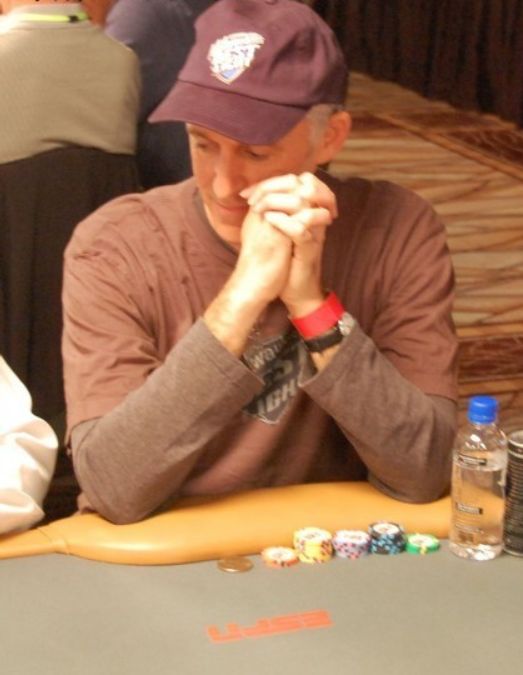
Bob Silverstein has described a number of internal "tell" states, such as a situation full of tension and external pressure (a difficult hand, a lot of money in the bank), feeling unwell because of a life gone wrong (problems in the family or profession), suppressing and controlling emotions, and of course the "Hellmuth rage".
Silverstein found something interesting here:
But first of all, I think that the title of this article is not quite right, because it is not about the classic "tellu's". Usually, tell's are certain movements or changes in a player's behaviour that give information about the strength of the hand. "Tells give away things that help the opponent make a better decision.
But Silverstein is talking about a "tilt" here. In his view, when a player is struck by internal "tells", he is actually in a state of "tilt". "Tilt - the poker player's biggest enemy. Many articles have been written about this condition, but the subject is still not fully understood.
 So why are internal "tells" in fact a "tilt"? Well, because they get in the way of finding the right decision. This happens when depression or fatigue makes it difficult to play. Internal 'tells' can also arise from financial problems such as declining "bankroll"Then there is a certain amount of fear, which is known to destroy self-confidence. Sometimes there are days when one loses calm and concentration in the game, and as a result one feels insecure and inferior.
So why are internal "tells" in fact a "tilt"? Well, because they get in the way of finding the right decision. This happens when depression or fatigue makes it difficult to play. Internal 'tells' can also arise from financial problems such as declining "bankroll"Then there is a certain amount of fear, which is known to destroy self-confidence. Sometimes there are days when one loses calm and concentration in the game, and as a result one feels insecure and inferior.
Each of these internal states leads to a "tilt", as anger, depression, fear, insecurity, confusion and other similar emotions get in the way of finding optimal solutions.
"Tilt" does not just mean that we start folding or that we often get into raise-reraise battles. "Tilt is about every, absolutely every, situation in which we no longer play our best game.
It seems simple enough, but...
If it is so simple, why is there such confusion? It is because there is often complexity in simplicity. Let us go back to Silverstein once again. He advises us to listen to our inner voice, to recognise our own emotional state and to try to find our inner harmony and confidence in pokerwhich is much needed at such moments.
Jerry Yang once said that he couldn't play poker well if he had extraneous thoughts wandering around in his head. "When I'm calm and relaxed, with no distractions, I feel almost invincible."
Humberto Brenes told Silverstein that when he loses a big bank, he puts his favourite song on his ipod and sings it out loud together until he calms down.
So it is important to understand two things. Firstly, it is necessary to recognise the situations that lead to a "tilt". This is not easy to do. I often find myself getting frustrated or losing patience. And whenever I notice this, I ask myself: "When did this all start? How long have I been feeling like this? How many bad decisions have I made?" I have been playing poker for many years and I am still learning to recognise this state of mind. It is still a challenge.
And secondly, you always need to be psychologically prepared to come back from a tilt. Humberto Brenes starts singing loudly, Jerry Yang tries to push away unpleasant thoughts, others start meditating or doing breathing exercises.
Translated by: Jonas Pakaušis
Borrowed from: http://www.pokerzeit.com/interne-tells-oder-einfach-nur-tilt
Author Von: Arthur S. Reber





